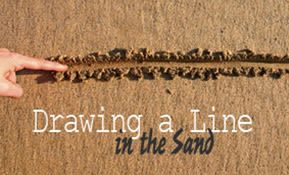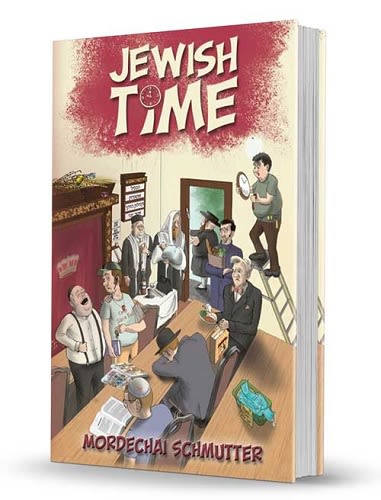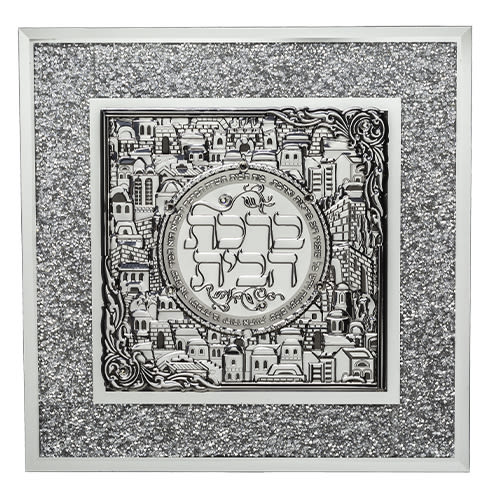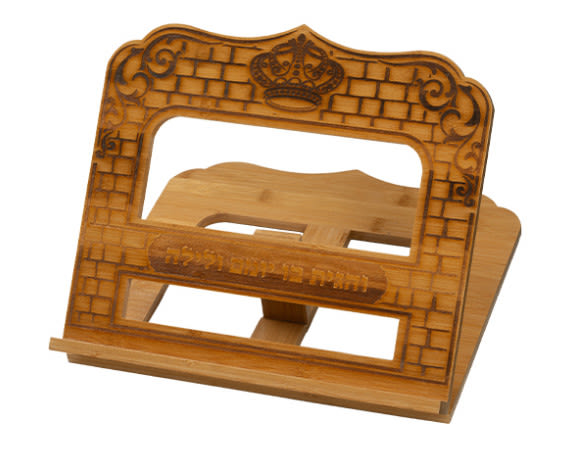
Noach: Change the World
Shakespeare wrote, “All the world is a stage, and the men and women merely players.” Had a rabbi edited his work, the line would read...

Do our actions really affect the world around us? Scientists, ecologists, and politicians think so. They blame people using hairspray and driving SUVs for depleting the ozone layer and causing global warming. They seem to forget that the greatest natural disaster in history happened long before such technology was available. After all, Noach built an ark, he didn’t buy a Hummer.
“Hashem saw the wickedness of Man was great upon the earth … and Hashem said, ‘I will dissolve Man whom I created, from upon the face of the earth — from man to animal, to creeping things, and to birds of the sky, for I have reconsidered My having made them'”. (Bereishit 6:6)
Why were the animals and birds destroyed? Were they to blame for man’s wickedness?
This can be explained with the following parable:
A king was about to marry off his son. In honor of the upcoming wedding, he spent hours planning and constructing a beautiful chuppah (marriage canopy). But just a few weeks before the big day, the prince angered his father to such an extent that he gave orders to have the prince executed.
After the execution, the king began tearing down the beautiful chuppah that he had built. One of the servants rushed up to him and cried, “Master! You spent so much money and so many hours of your precious time building this most magnificent chuppah! Why are you destroying it?”
The king replied, “The only reason I constructed this chuppah was in honor of my son’s wedding. Now that my son is destroyed, this, too, shall be destroyed.”
The Flood destroyed the animals and birds, in addition to people, because the animals and birds were created to serve humanity. If humanity is to be destroyed, then their servants, too, are to be destroyed (Maharal of Prague, Pirkei Avot, pg. 16).
Shakespeare wrote, “All the world is a stage, and the men and women merely players.” Had a rabbi edited his work, the line would read, “The entire world is a stage, and men and women are the stars of the show.” It is evident from the Flood that the fate of the entire world rests on the actions of humanity. The world’s creations serve as supporting roles in God’s play — yet the success or failure of the overall production rests solely on the performance of the leading characters.
When God created the world He didn’t simply walk away and let Nature run its course. The Ramchal explains in Derech Hashem (The Way of God) that for the world to survive, God must continually maintain His Creation. Without God constantly recreating and maintaining the world, the world would cease to exist. Humanity plays a crucial role in this equation; God’s decision to renew Creation is contingent on man’s actions.
The deeds of mankind can be likened to fuel in a car. While God is both the driver and the mechanic responsible for the functioning of the car, a car must have gas to run.
According to Shimon HaTzaddik this “gas” consists of three components: Torah study, avodah (service of God), and chesed (kind deeds). Further, it is stated in Pirkei Avot (1:2) “The world depends on three things; Torah, Avodah, and Chesed.” Through man’s success in these three areas, the world is worthy of being maintained.
Through Torah study, avodah (prayer), and acts of chesed, man maximizes his potential as the link between God and His creation. Only a human being is capable of serving as this link between the mundane and the Divine, a human being consists of both the physical and spiritual. Through Torah study, the service of God, and kind deeds, man elevates his physicality and channels Divine energy into the world.
These three pillars uphold the world. During the Generation of the Flood, the people sinned against all three pillars, and for that reason the world was destroyed. The generation of Noach practiced sexual immorality, the antithesis of Torah study. Whereas Torah study uplifts man, improper sexual conduct turns him into an animal. In addition, instead of serving God, they worshiped idols. Instead of practicing kindness and giving to one another, they stole from each other (The Maharal of Prague).
Despite the horrific destruction that ensued as a result of mans’ sins, all was not lost. After all, we are here today! Due to the righteous actions of Noach, Noach and his family were spared from death and his offspring rebuilt humanity.
Who were these people who rebuilt the world? “These are the offspring of Noach — Noach was a righteous man, perfect in his generations; Noach walked with God” (Bereishit 6:9). The Torah states, “These are the offspring of Noach” and then goes on to list Noach’s positive attributes! Rashi comments, “The main offspring of the righteous are good deeds.”
Our good deeds are so significant that they are compared to our children. Just as we wouldn’t forget or take a child for granted, we should treasure each of our good deeds. Mitzvot are physical manifestations of spiritual growth and development. They accompany us in our lifetime in this world and the next, and leave a lasting mark in the world after we die.
In Likutey Moharan, Rebbe Nachman says that our good deeds become lamps that illuminate a world of spirituality, and awaken our souls to a deeper understanding of the world. The more careful we are to perform mitzvot properly, the longer and brighter the lamp will burn, giving us a greater opportunity to attain higher spheres of spirituality.
Any person who truly strives to do mitzvot can attain a high level of spirituality. While on this level, we are able to understand and achieve things we could not have achieved before. Rebbe Nachman refers to these additional pearls of wisdom as the gems in the King’s treasure chest. Rebbe Nachman says, “This (level of spirituality) is certainly a most wonderful privilege. You can find wonderful treasures even in this short time and then enjoy them in the Future World forever” (#134 Sichot HaRan, by Reb Nosson of Nemirov).
From the legacy of the Flood we see that man’s actions have the power to make or break the world as we know it. We have the power to elevate the world through our behavior. In contrast, the amount of money we earn, our professions, and even our philanthropic endeavors cannot compensate for any immoral behavior.
Living as a Jew, striving to improve ourselves, and maximizing our good deeds illuminates our own spiritual potential and provides the entire world with the fuel it needs to function properly. May our good deeds and merits increase to such an extent that an even greater light shines forth, heralding the coming of Mashiach!










